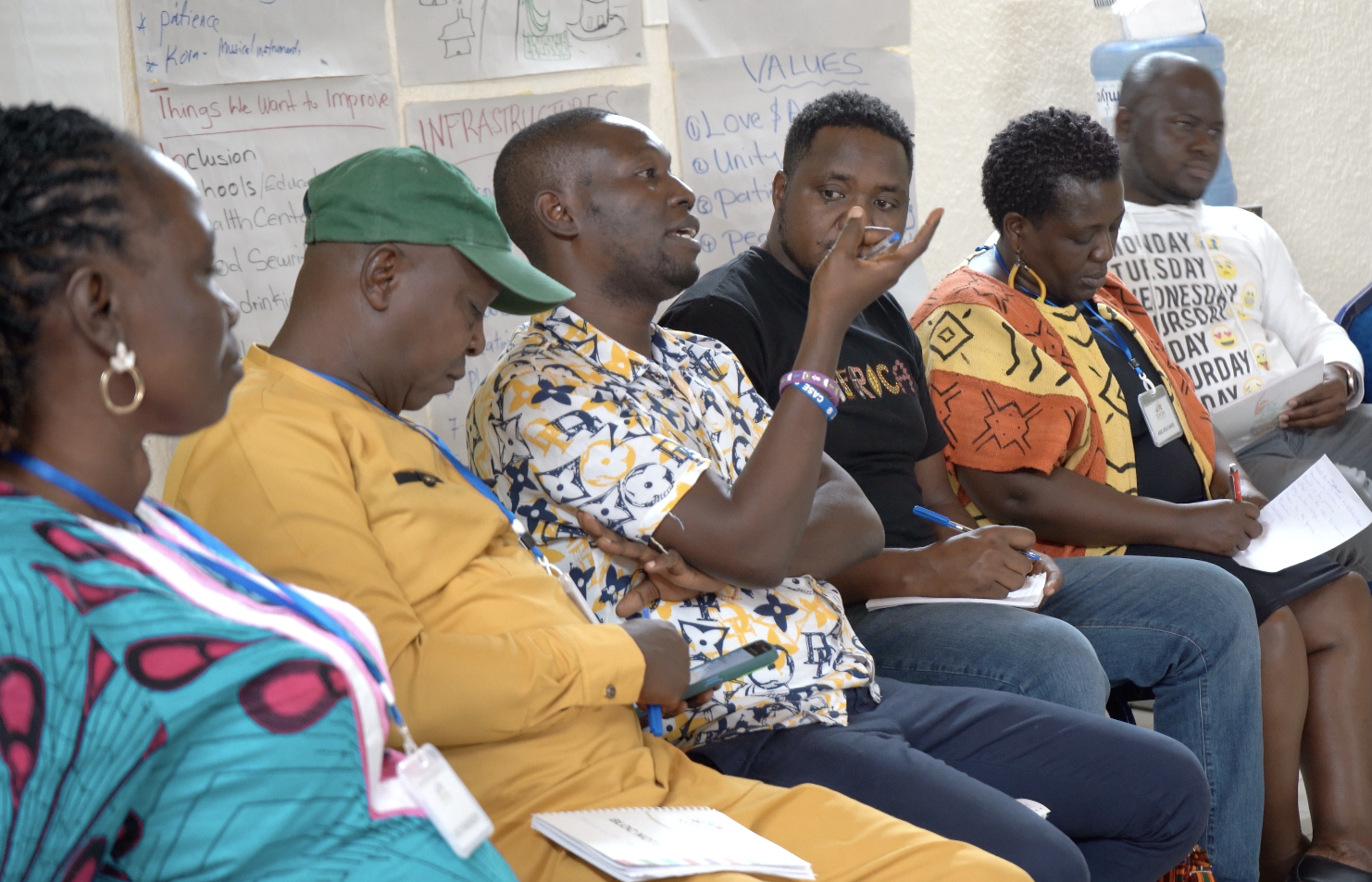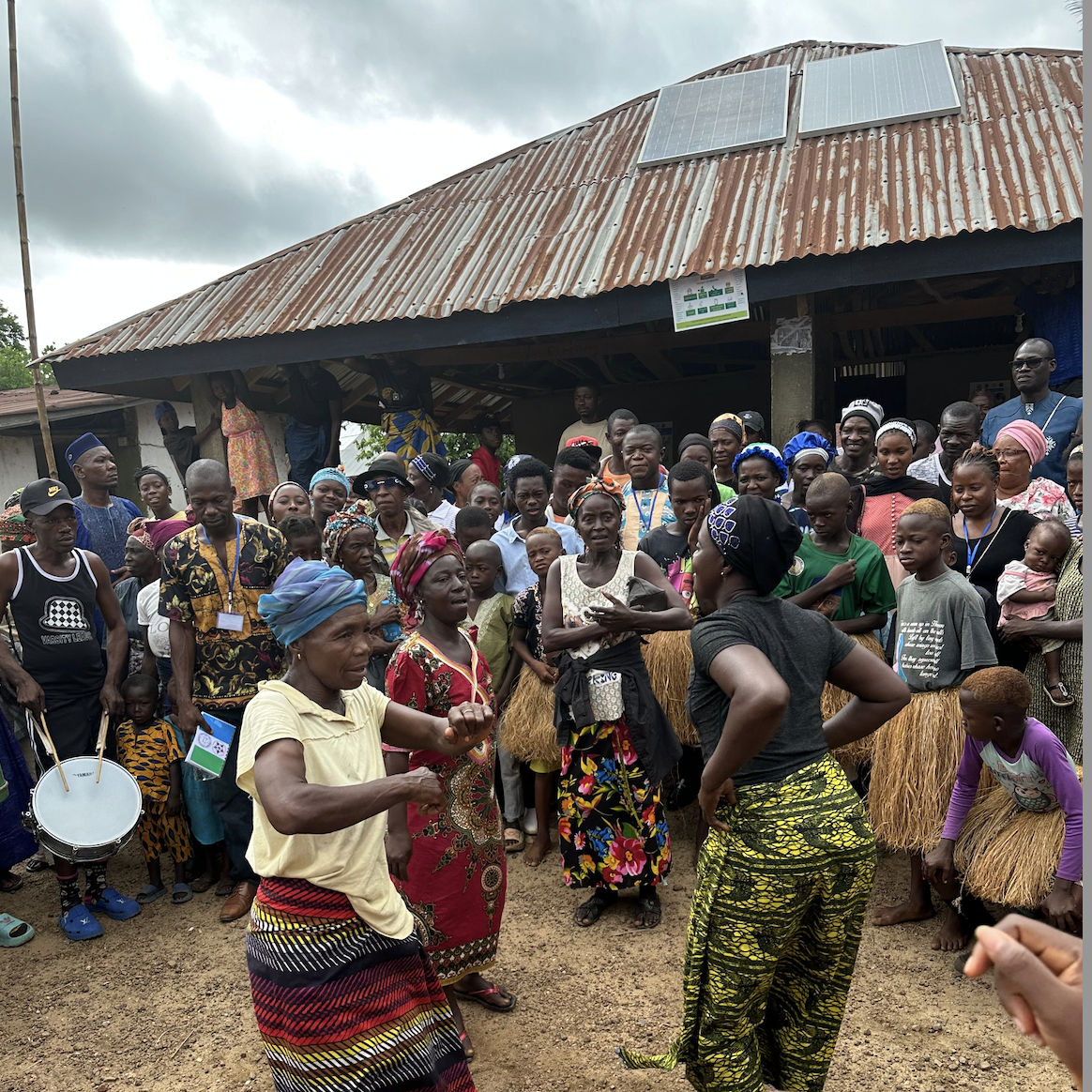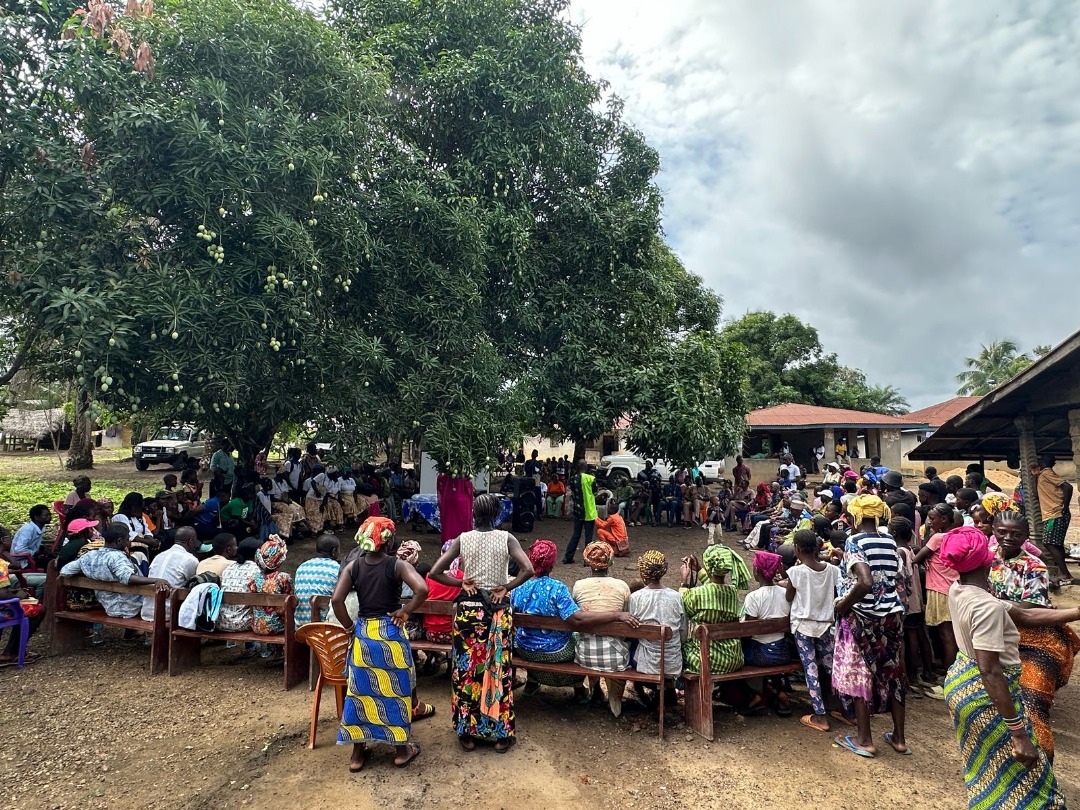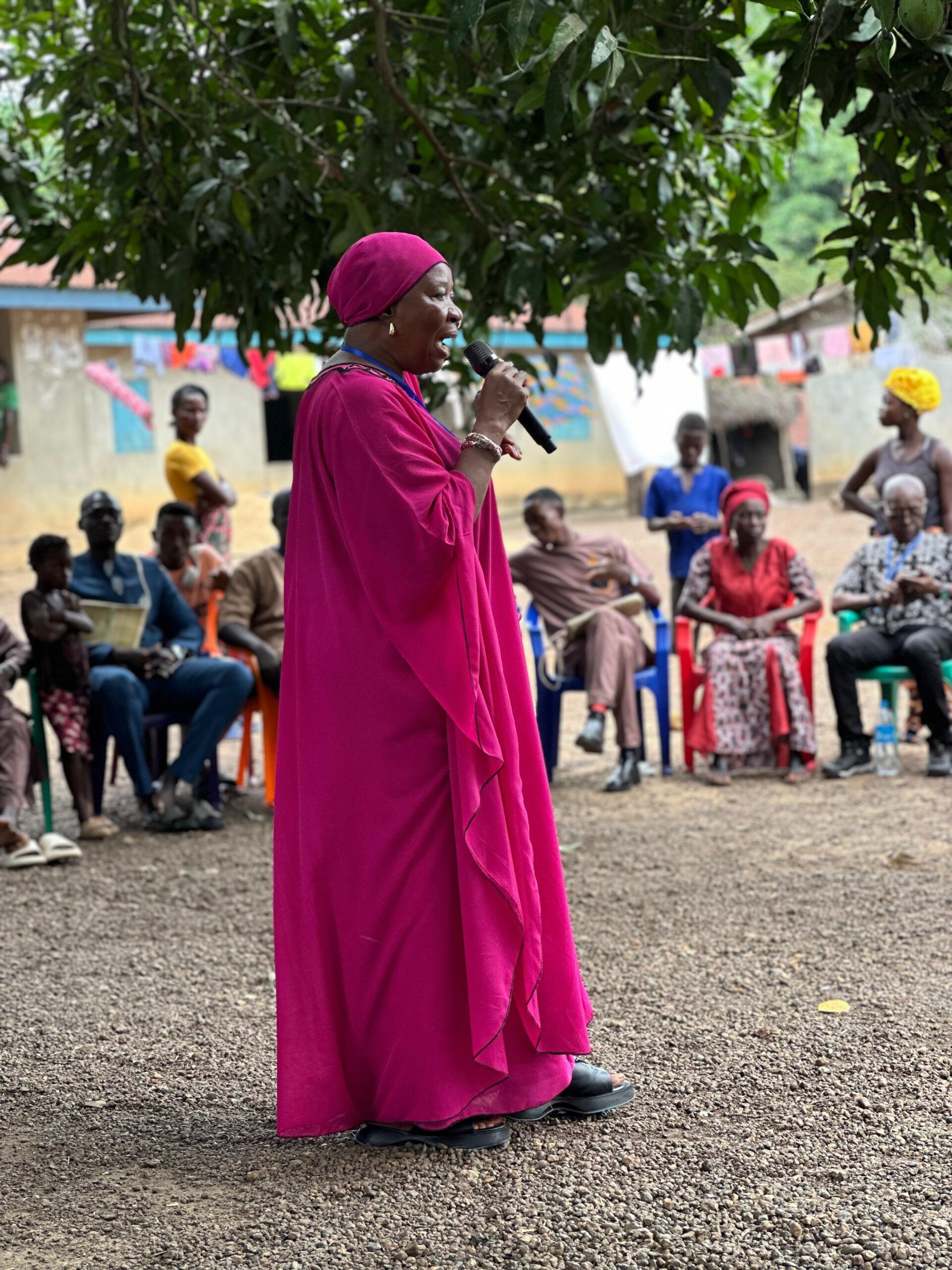
Global Fund for Children (GFC) and Tostan have forged a powerful partnership over the past four years, united by a shared commitment to promoting community well-being and empowering children, adolescents, youth, women, and men to lead dignified lives. This collaboration is rooted in the belief that community-led approaches are essential for fostering sustainable development and creating a society where everyone has equal opportunities to thrive.
Following the successful participation of GFC West Africa team and partners in both Tostan Introductory and Advanced Seminars on Promoting Community Wellbeing, GFC and Tostan realized that learning is a continuous and evolving journey. Recognizing the momentum, enthusiasm, and deepening commitment of GFC’s partners to embed CLA principles in their work, the two organizations—alongside One Village, Tostan’s partner based in Sierra Leone—agreed to co-organize a Community Led Approach (CLA) Deepening Seminar in one of the countries where GFC partners are actively implementing community-led initiatives, providing an opportunity for hands-on learning, localized reflection, and collaborative growth.
This in-depth session convened 40 participants, including representatives from GFC team, partner organizations, their collaborators, and community leaders. The seminar also welcomed participation from Tostan’s partner organization OneVillage Partners’ team members, based in Sierra Leone, further enriching the exchange of experiences and perspectives.
The seminar was facilitated by GFC partners and team members who had previously completed the Advanced Seminar at Tostan’s training center in Thiès, Senegal. This served as an opportunity for them to put their facilitation training into practice, showcasing their growing capacity to share, adapt, and expand the reach of Tostan inspired CLA methodologies within their own contexts. Acknowledging the importance of sustained support to embed these principles meaningfully, GFC entered into a collaborative agreement with Tostan to bring in their experienced facilitators to provide mentoring support during the deepening session.
‘’I attended the phase of the seminar in Senegal. However the deepening seminar served as an opportunity that has improved my confidence in facilitating the community wellbeing seminar.’’
The Power of Community-Led Approach
The Community-Led Approach emphasizes the importance of community ownership and participation, resulting in sustainable and meaningful change. It has been instrumental in facilitating community-led initiatives, particularly in human rights, health, and education.
The CLA Deepening Seminar was designed to build on this foundation, providing participants with a more profound understanding of the approach and equipping them with the skills to implement it effectively in their communities.
A Journey of Learning and Growth
The seminar was a rich tapestry of experiential learning, community visits, and deep reflection. Participants explored key concepts such as:
- The importance of values in development work
- Visioning as a framework for community engagement
- Using wellbeing as a framework for sustainable development
- Human rights principles and responsibilities
- The alignment between human rights and religious values
- Social norms and how they influence community behavior
- Effective communication for social change
- Community governance structures

The interactive nature of the sessions allowed participants to not only learn about these concepts but to experience them firsthand. As one participant noted in the feedback survey,
‘’The convening was quite insightful especially in not only enabling participants better understand the theoretical importance of a CLA approach in fostering community wellbeing but also learn and see the practical ways in which it has been applied and is making a positive impact in communities served.’’
Voices from the Field
The seminar also included an insightful field visit to the Borbu community in Kenema, where four (4) other communities supported by GFC partners were invited to connect, exchange ideas, and share the tangible impact of the Community-Led Approach (CLA) in their own settings. The gathering evolved into a powerful moment of storytelling, with women, men, children, adolescents, and youth from various communities speaking candidly about the sustainable changes they had initiated. These stories highlighted how, through the guidance of GFC partners, they came to recognize their own agency and the collective power they hold to lead transformative change from within.
Representatives from Nyengbema community shared how GFC partners helped them realize their ability to drive their own development. Motivated by this newfound awareness, they initiated the construction of a junior secondary school to ensure their children no longer had to travel long, dangerous distances to access education. After successfully producing the bricks themselves, their commitment inspired an international organization to step in and support the completion of the school—an example of how local initiative can catalyze broader investment.
Representatives from eKomende community spoke proudly of how they came together to build a community meeting hall by pooling local resources, underscoring the power of solidarity and self-reliance at the grassroots level.

Honorable Mambu Mansaray, Chief of Borbu, the host community, shared a courageous and groundbreaking decision they had collectively made to ban the “Poro society,” a traditional male initiation practice they recognized as reinforcing harmful norms and contributing to violent behaviors among boys. This bold move, born out of deep community-led reflection and dialogue, marked a profound cultural transformation and a renewed commitment to peaceful, gender-equitable socialization. Community members also highlighted a noticeable reduction in gender-based violence and emphasized how men are now actively collaborating with women to promote the overall wellbeing of their children and community.
One of the most powerful and moving moments of the visit came when a former female cutter courageously stood before the group to share her personal journey and decision to abandon the practice of female genital cutting (FGC). Her transformation was sparked by a discussion on personal well-being facilitated by the Children’s Forum Network (CFN) – Kenema Branch, which encouraged deep community reflection on the harmful effects of FGC on girls and women. Today, she is a passionate advocate for girls’ education and well-being, dedicating herself to protecting future generations and inspiring others in her community to embrace positive change.
Reflections from Participants
The seminar created a profound sense of community among participants, with many expressing how it had changed their perspective on development work.
‘’We have been having some difficulties with sustainability with most of our work and Istrongly believe that with the integration of this method we will get great results.’’
‘’I am going to utilize the knowledge gained to pilot the CLA model in my organization and two communities by extension.’’
‘’I have done several activities using the CLA but never did the way it was done during the seminar. It was good that I was there to represent my network Partners Against Harmful Traditional Practices.’’
“This experience showed me that sustainable change must come from within the community. Our role is not to impose solutions but to facilitate a process that allows communities to identify their own needs and develop their own strategies.”
“The energy and commitment in this community is inspiring. What we’ve seen here confirms our belief that when communities lead their own development processes, the results are more sustainable and meaningful.”

A Supported Community
The seminar also strengthened the LAFIA Community of Practice (CoP), which serves as a permanent forum for continued sharing and mutual learning. GFC partners are active members of the LAFIA Community of Practice, which in 2023 supported a partner-led research project in both Sierra Leone and Liberia that documented how the application of the learning impacted their work and encouraged further sharing and application.
This growing network of practitioners committed to community-led development represents one of the most promising aspects of the GFC-Tostan partnership.
Looking Forward
As Ame Atsu David, GFC regional Co-Director for Africa noted during the closing ceremony, “This experience brought greater clarity and renewed inspiration about the power of community-led development.”
The swift and impactful results achieved within a relatively short period demonstrate the potential for even greater success as partners continue to deepen their understanding and implementation of the community-led approach.
As partners become more adept at implementing this approach, the positive impact on communities will continue to grow, fostering lasting change and improving the well-being of children and young people, particularly girls.
The journey continues, with virtual follow-up meetings to explore how GFC partners and collaborators as well as One Village Partners are adapting the Tostan-inspired Community-Led Approach in their specific contexts, drawing from their ongoing experiences in the field.
The CLA Deepening Seminar was made possible through collaboration between Global Fund for Children, Tostan, and One Village Partners, reflecting a shared commitment to strengthening community-led development across West Africa.

